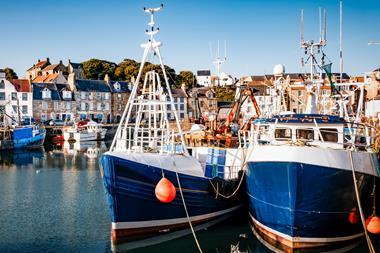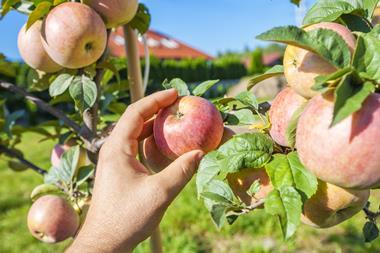US scientists point to serious concern for global food security'
Ocean-wide study reveals collapse of fish stocks
The first ocean-wide synthesis of the status of fisheries in the North Atlantic has revealed a grim prognosis.
A press conference at the American Association of the Advancement of Science in Boston was told that over the last 50 years, the catch of preferred food species such as cod, tuna, haddock, flounder and hake has decreased by more than half despite a tripling of fishing effort.
"The only way we are maintaining yield is by increasing effort," said Dr Daniel Pauly of the University of British Columbia Fisheries Centre, and the head of the large international project.
Disastrous collapses in areas like New England and Newfoundland had appeared to be local in scale but this new synthesis reveals that the collapse applies to the entire North Atlantic.
"You may think we are making headway with a few individual stocks, but overall we are unequivocally losing the battle to manage fisheries in the North Atlantic," said Pauly. "Unless you have both long term and large spatial scales, as we have mapped, you cannot see the big picture. The problem is profound at an ocean-wide scale."
Reg Watson of the University of British Columbia said: "The large fish we find in our local markets are being imported from developing regions of the world such as west Africa, south east Asia and other areas masking our own crisis. We are paying fishers in other oceans to grind down their marine ecosystems for our consumption. This is a serious concern for global food security."
The researchers also pointed to the way huge sums of taxpayers' money were subsidising fishing fleets searching out "the last fish left".
The report will provide more momentum for farmed fish industries but that's a sector itself always under attack from environmentalists.
{{MEAT }}
Close menu
- Home
- Retail & Wholesale
-
Products & Suppliers
- Back to parent navigation item
- Products & Suppliers
-
Product Categories:
- Back to parent navigation item
- Product Categories:
- Alcoholic drinks
- Bakery
- Cereals & breakfast
- Cheese
- Chicken & poultry
- Chocolate
- Confectionery
- Crisps, nuts & snacks
- Dairy
- Fish
- Fresh produce
- Frozen
- Household
- Meat
- Own Label
- Sauces & condiments
- Seasonal
- Soft drinks
- Vaping
- Vegan & plant-based
- World foods
- Suppliers
- People
- Reports & Data
-
Topics A-Z
- Back to parent navigation item
- Topics A-Z
-
Popular topics:
- Back to parent navigation item
- Popular topics:
- Cost of living crisis
- Crime
- Deposit Return Schemes
- Finance
- Government & Regulation
- Health
- Inflation
- Loyalty
- Marketing
- Mergers & Acquisitions
- New Product Development
- Sourcing
- Supply chain
- Sustainability & environment
- Technology
- Ultra Processed Foods
- Vaping
- A-Z all topics
- Content by type:
- Events
- Ask iA (beta)
- Subscribe now
Sign in to comment on this article
Not logged in before? Register for FREE guest access today.
You will be able to:
- Read more stories
- Receive daily newsletters
- Comment on stories
Advert
















No comments yet